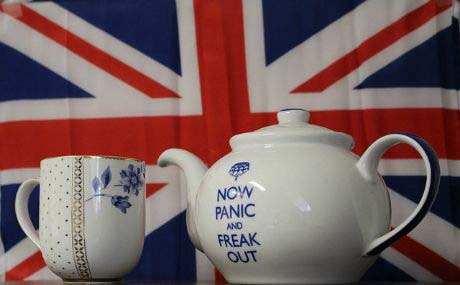Fear of the Future and the Need for Meaning, 2

In Part 1 of “Fear of the Future”, we saw in general terms how discovery of personal meaning can help the individual face the reality of fear.

…Or, is there an alternative?
Here, we’ll look concretely at what it might mean to find meaning that could help to overcome the effect of fear.
This past week has seen particular manifestations of the power of fear, in the success of the “Leave” vote in the so-called Brexit referendum concerning whether Britain is to remain in the European Union. Suffice it to say that the drivers behind this decision, which many Britons already regret, are very powerful fears of many types. The power of these fears to drive an outcome that, really, very few people want, is staggering.
So, how can a sense of underlying meaning possibly help in such a situation? And just what is meaning?
Meaning is Subjective
Jung, like Viktor Frankl, viewed meaning as central to his life as person and as therapist. He saw it as central to our wrestling with the challenges and dilemmas of being human, including good and evil and suffering. However, he would never speak of “the meaning of life” as if there was some objective single truth out there that we could all learn, and that would somehow settle all of life’s questions for the whole human race. For him, the nature of that meaning was much more individual and subjective. He also viewed the discovery of meaning in human life as an experience of profound healing.
Human Beings Suffer When There Is No Meaning
Jung also tells us that one of the very greatest of sources of human suffering is the sense of lack of meaning, that the things which occur to us are pointless and random, without any inner sense. In fact, he described neurosis as “ultimately… the suffering of a soul that has not discovered its meaning.” He describes how important it is that “the doctor” (by which he means what we would call “the therapist“) help the client find “the meaning that quickens… for it is this that the [suffering] person longs for…. [The client] is looking for something that will take possession of him and give meaning and form to the confusion of [his or her] soul.”

The Discovery of Meaning
A thing which is “numinous” has a sense of awe attached to it that makes it seem more profound and important than everyday life. It can be something that seems “divine”, or of a profound spiritual significance, or of an importance greater than what we encounter in everyday human life. Something that has a significance far greater than even our fear of the future. An example in music which points to the numinous, yet without a religious reference, would be Copeland’s Fanfare for the Common Man:
Meaning and Personal Myth
As /a-midlife-transition James Hillman reminds us, meaning is found in our “personal myth”. To find our personal myth is to find the way that our personal, individual story connects with Story. Or, as Hillman elaborates,
…to understand one’s mess, one seeks the mythical pattern, for its mythical personalities… and their behaviour give the clues to what is happening in our behaviour.
By finding our own personal myth, through working with dreams and through coming to a more and more in-depth understanding of our own inner life and story, each of us gains a sense of being rooted in something that is bigger and deeper than the projects of the ego, and that transcends our personal fear of the future.
…And What About You and I?
Where does fear of the future strike you most strongly? Do you have a sense of where you find meaning, or of your personal myth? As James Hollis tells us, “Most people come into therapy because their old map, their former myth, has been exhausted.” Depth case studies is very much a journey to new meaning.
Brian Collinson, Registered Psychotherapist & Jungian Analyst
[cta]
